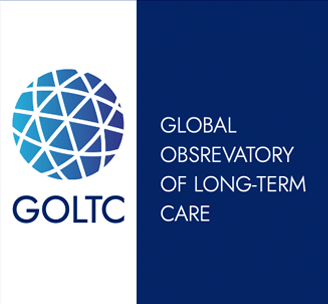Annette Bauer
Care Policy and Evaluation Centre, London School of Economics and Political Science
Annette Bauer

I have been researcher at the Care Policy and Evaluation Centre at the London School of Economics and Polticial Science (LSE) since 2010, leading and involved in many (economic) evaluations of complex intervention programmes in the UK, Europe and globally. My academic backgrounds have been economics and business management, with subsequent development into healthcare management (both in Germany) and health policy planning and finance, including cost-effectiveness analysis and modelling (at LSE, in the UK). Professionally I worked in London for several years on the development, implementation and evaluation of health inequalities-reducing programmes at a neighbourhood-level and on leading on quality improvement programmes in mental health. I have had interests in understanding and reducing social and health inequalities throughout my life. In the past, I also worked part-time as economist for the National Institute for Health and Care Excellence, leading the economic work for social care guidelines.
FURTHER INFORMATION
| Countries | Europe; |
|---|---|
| Topics | Care innovations; Co-production in LTC; Community-based LTC; Economics of LTC; End-of-life care and LTC; Evaluation of LTC systems and services; Gender and care; Local care ecosystems; LTC and people with learning disabilities; LTC and people with mental health conditions; New models of care; Social Innovation in LTC; Stigma and discrimination; |
| Methods | Case studies; Co-production methods; Economic evaluation; Knowledge-exchange; Literature reviews and synthesis; Mixed methods; Policy analysis; Qualitative studies; Quasi-experimental methods; Research ethics; Systematic Review; Theory and frameworks; Theory of Change; Trials and other evaluations; |
| Role | Research; |
| Interest Groups | Economics of Long-Term Care; Quasi-experimental methods; |
| Website | https://www.lse.ac.uk/cpec/people/annette-bauer |
| ORC.ID | 0000-0001-5156-1631 |
| https://twitter.com/a_annettemaria | |
| Research interests | My research is driven by a desire to develop and apply methodologies that can produce evidence and knowledge useful to those making or informing decisions about how resources are spent, and services and support provided to improve population wellbeing. My expertise is the economic evaluation and analysis of complex, prevention-focused mental health and social care policies, programmes, and interventions, that seek to address underlying social determinists and inequalities. This includes the use of theory-driven approaches, mixed-methods, and economic modelling, drawing on Theory of Change, realist synthesis, complex system thinking, and implementation science. I led several economic research projects in the perinatal mental health area over the last 10 years in the UK, Europe and in low- and middle-income countries, which had major impacts on change in policy, research, and practice. My interest in to employ participatory methods towards economic evaluation and modelling, and applying a system approach to the promotion and generation of economic evidence, in areas concerning vulnerable populations and in systems with limited capacity and capabilities to generate or use economic evidence. |
| Key publications | Bauer A et al (2022) The lifetime costs of perinatal depression and anxiety in Brazil. J Affect Disord, 319, 361-369. Bauer A et al (2022) Costs of common perinatal mental health problems in South Africa. Glob Ment Health, 9, 429-38. Knapp M, Bauer A et al (2022) What are the current and projected future cost and health-related quality of life implications of scaling up cognitive stimulation therapy? Int J Geriatr Psych, 37, 10.1002/gps.5633. Bauer A et al (2021) Integrating youth mental health into cash transfer programmes in response to the COVID-19 crisis in low-income and middle-income countries. Lancet Psychiatry, 8, 340-346. Bauer A et al (2021) Towards a programme theory for family-focused practice in adult mental health settings: An international interview study with programme leaders. Front Psychiatry,12, 741225. Bauer A et al (2021) Mobilising social support to improve mental health for children and adolescents: A systematic review using principles of realist synthesis. PLoS One 16(5):e0251750. Bauer A et al (2021) Exploring the cost-effectiveness of advance care planning by taking a family carer perspective: Findings of an economic modelling study; Health Soc Care Community.29: 967-981. Bauer A, Tinelli M, … Knapp M (2021) Value for money in social care: the role of economic evidence in the guideline development process of NICE. Journal of Long-Term Care 303–317. Bauer A et al (2019) Access to health care for older people with intellectual disability: a modelling study to explore the cost-effectiveness of health checks. BMC Public Health, 19, 706. Bauer A et al (2019) Cost‐minimisation analysis of home care reablement for older people in England: A modelling study. Health Soc Care Community 00:1-10. Bauer A, et al (2019), Valuing recovery-oriented practice at the interface between mental health services and communities: The role of organisational characteristics and environments, International Journal of Social Psychiatry, 65 (2). Bauer A, et al (2019), Social innovation in health care: The recovery approach in mental health; in: Social innovation: Comparative Perspectives; Edit. Anheier HK, Krlev G, Mildenberger G, 1st Edition, Routledge, New York. Ribeiro WS, Bauer A, et al (2017), Income inequality and mental illness-related morbidity and resilience: a systematic review and meta-analysis, Lancet Psychiatry 4:554-562. Bauer A et al (2016), Costs and economic consequences of a help-at-home scheme for older people, Health Soc Care Community, 25:780-789. Bauer A et al (2016), Lifetime costs of perinatal anxiety and depression, J Affect Disord, 192: 83-90. Bauer A et al (2014) Investing in advocacy for parents with learning disabilities: what is the economic argument, British J Learn Disab, 43:66-71. Knapp M, Bauer A, et al (2012) Building community capital: is there an economic case? Community Develop J, 48(2):313-331.
|

